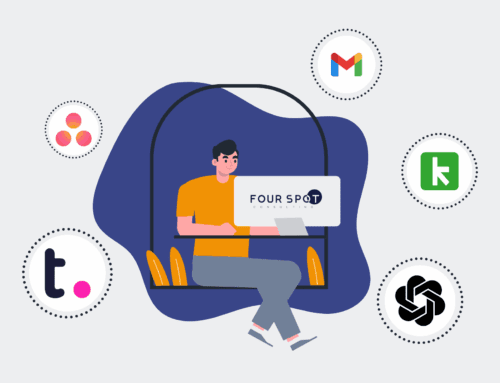How AI Resume Parsing Enhances Diversity, Equity, and Inclusion
In today’s competitive talent landscape, organizations are under increasing pressure to not only attract top talent but also to build diverse, equitable, and inclusive (DEI) workforces. While the aspiration for DEI is universal, the practical implementation, particularly within the initial stages of recruitment, often falls short. Traditional resume screening methods, heavily reliant on human review and outdated keyword matching, are inherently prone to unconscious biases, bottlenecking efforts to create truly diverse teams. It’s a critical business problem: a lack of diversity can stifle innovation, limit market reach, and ultimately impact profitability.
The Unseen Barriers in Traditional Hiring
Manual resume review, while seemingly thorough, is a hotbed for biases. Recruiters, often unknowingly, favor candidates from familiar universities, with certain names, or specific career paths, even if those factors have no bearing on actual job performance. Keywords used in job descriptions can also inadvertently exclude qualified candidates who describe their skills differently. Furthermore, the sheer volume of applications can lead to superficial reviews, where qualified individuals from underrepresented groups might be overlooked simply because their resume doesn’t fit a preconceived mold. This creates a vicious cycle, reinforcing existing workforce demographics and making it incredibly difficult for organizations to broaden their talent pool effectively.
AI Resume Parsing: A Catalyst for Fairer Recruitment
This is where AI resume parsing emerges as a powerful, transformative tool. Far beyond simple keyword searches, advanced AI parsing uses natural language processing (NLP) and machine learning to deeply analyze resumes, extracting structured data from unstructured text. This process allows organizations to move beyond surface-level characteristics and focus on core competencies, skills, and experience in a standardized, objective manner. When implemented thoughtfully, AI parsing can significantly enhance DEI by systematically reducing bias at the earliest and most critical stage of the hiring pipeline.
Anonymization and Bias Reduction
One of AI parsing’s most direct contributions to DEI is its ability to anonymize candidate data. Before a human recruiter even sees a resume, AI can strip away identifying information such as names, gender pronouns, addresses, graduation years, and even the names of educational institutions that might trigger unconscious biases. By presenting a “blinded” profile focused solely on qualifications, experience, and skills, AI forces reviewers to evaluate candidates based on merit alone, leveling the playing field for individuals from diverse backgrounds.
Skill-Centric Evaluation
Traditional screening often defaults to “pedigree” – where someone went to school or their previous company’s reputation. AI parsing, however, excels at extracting and prioritizing specific skills, certifications, and project experience relevant to the role. It can identify transferable skills from non-traditional career paths, military service, or even volunteer work that might be missed by human eyes focused on linear career progression. This skill-centric approach significantly broadens the definition of a “qualified” candidate, allowing organizations to tap into a much richer and more diverse talent pool that might otherwise be overlooked due to unconventional backgrounds.
Standardized and Objective Screening
Consistency is key to equity. AI parsing applies the same, pre-defined criteria to every single applicant, removing the variability inherent in subjective human judgment. This ensures that every candidate is evaluated against the same benchmark of required skills and experience, rather than being subjected to the individual biases or fluctuating attention spans of different recruiters. The result is a more uniform, fair, and defensible screening process that actively works to mitigate arbitrary exclusion.
Expanding the Talent Pool
AI’s ability to quickly and accurately process vast numbers of resumes, irrespective of format or stylistic variations, means organizations can cast a wider net. This efficiency allows companies to consider applicants from a broader range of sources, including those who may not have perfect, professionally crafted resumes but possess the exact skills needed. By reducing the manual burden, AI empowers recruiting teams to focus on active outreach and engagement with diverse communities, rather than being bogged down in administrative tasks.
Navigating the Ethical Landscape: Ensuring AI Drives True Equity
While the potential of AI parsing for DEI is immense, it’s not a silver bullet. The effectiveness and fairness of AI are intrinsically linked to the quality and diversity of the data it’s trained on. If AI models are built using historical data reflecting past biases, they risk perpetuating those very biases. Therefore, a critical component of ethical AI deployment involves rigorous testing, continuous monitoring, and the use of diverse, unbiased training datasets. Organizations must actively audit their AI systems to ensure they are fulfilling their promise of equity rather than inadvertently reinforcing existing inequalities.
At 4Spot Consulting, our human-centric AI approach emphasizes strategic planning before implementation. We understand that deploying AI in HR isn’t just about integrating technology; it’s about embedding intelligence that supports your organizational values and business outcomes. This means designing AI systems that are transparent, accountable, and continuously optimized to ensure they are truly enhancing diversity, equity, and inclusion, not just automating existing inefficiencies.
The 4Spot Consulting Approach to Inclusive AI Integration
Leveraging AI for resume parsing strategically can transform your talent acquisition process, reducing operational costs and human error while simultaneously fostering a more diverse and inclusive workforce. Our OpsMap™ diagnostic, for instance, helps identify specific areas where AI and automation can deliver significant ROI, ensuring that any AI solution implemented is aligned with your DEI goals and overall business objectives. By strategically integrating AI, companies can create a recruitment pipeline that is both highly efficient and deeply equitable, discovering talent previously hidden by traditional methods.
The future of talent acquisition is one where technology and human values converge. AI resume parsing, when implemented thoughtfully and ethically, is not just a tool for efficiency; it is a powerful ally in the ongoing mission to build more diverse, equitable, and ultimately more successful organizations.
If you would like to read more, we recommend this article: The Future of Talent Acquisition: A Human-Centric AI Approach for Strategic Growth








